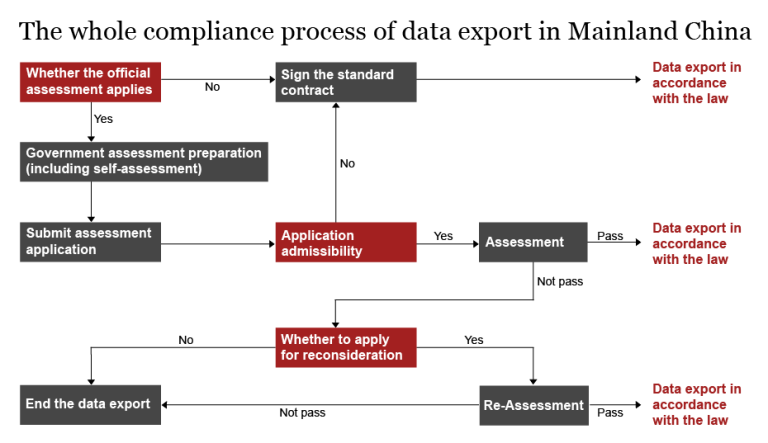China Cracks Down on Trademark Hoarding with New Non-Use Cancellation Guidance
In a move to combat the growing problem of trademark hoarding and to promote a more efficient and equitable trademark system, China’s National Intellectual Property Administration (CNIPA) has issued updated guidance on trademark non-use cancellations. The new measures, which were released in September 2025, are designed to make it easier to cancel trademarks that are not being used in commerce, thereby freeing up valuable brand names for legitimate businesses. For UAE companies seeking to enter or expand their presence in the Chinese market, this development is a welcome step that will help to level the playing field and reduce the barriers to brand registration.
The updated guidance is a direct response to the increasing problem of “trademark squatting” in China, where individuals or companies register a large number of trademarks with no intention of using them, but rather to sell them at an inflated price to businesses that have a legitimate claim to the name. This practice has created significant challenges for international brands, including those from the UAE, who have often found that their brand names have already been registered in China.
Key Provisions of the Updated Guidance
The updated guidance introduces several key changes to the trademark non-use cancellation process, making it more streamlined and effective. The most significant provisions are as follows:
| Provision | Description |
|---|---|
| Simplified Evidentiary Requirements | The new guidance simplifies the evidentiary requirements for proving non-use of a trademark. This will make it easier for businesses to challenge trademarks that are not being used in commerce. |
| Shorter Timelines | The updated guidance aims to shorten the timeline for non-use cancellation proceedings. This will provide businesses with a quicker and more efficient mechanism for resolving trademark disputes. |
| Increased Scrutiny of Token Use | The guidance clarifies that “token use” of a trademark, such as a single sale or a small amount of advertising, will not be sufficient to defend against a non-use cancellation action. This will prevent trademark squatters from using sham transactions to maintain their registrations. |
| Greater Emphasis on Good Faith | The updated guidance places a greater emphasis on the principle of good faith. This means that trademark registrations that are made in bad faith, with the intention of hoarding or squatting, will be more vulnerable to cancellation. |
Implications for UAE Businesses
The updated guidance on trademark non-use cancellations will have a significant and positive impact on UAE businesses seeking to protect their brands in China.
A More Level Playing Field
By making it easier to cancel unused trademarks, the new guidance will help to level the playing field and reduce the power of trademark squatters. This will make it easier for legitimate businesses to register their brand names in China and to protect their intellectual property rights.
Reduced Costs and Delays
The simplified and expedited cancellation process will also help to reduce the costs and delays associated with resolving trademark disputes. This will be a significant benefit for small and medium-sized enterprises (SMEs) from the UAE, who often have limited resources to engage in lengthy and expensive legal battles.
A Stronger Incentive to Use Trademarks
The new guidance will also create a stronger incentive for trademark owners to actually use their trademarks in commerce. This will help to ensure that the trademark register is a more accurate reflection of the brands that are actually being used in the market, which will benefit both businesses and consumers.
A Proactive Approach to Brand Protection
While the updated guidance is a positive development, it is still essential for UAE businesses to take a proactive approach to brand protection in China. This includes:
- Conducting a thorough trademark search: Before entering the Chinese market, conduct a thorough trademark search to ensure that your brand name is not already registered.
- Filing for trademark registration early: File for trademark registration as early as possible to secure your rights to your brand name.
- Monitoring the trademark register: Regularly monitor the trademark register to identify any potential infringements of your rights.
- Taking action against infringers: If you discover that your trademark is being infringed, take prompt action to enforce your rights.
A More Mature and Sophisticated IP System
The updated guidance on trademark non-use cancellations is another sign of the increasing maturity and sophistication of China’s intellectual property system. By cracking down on trademark hoarding and promoting a more efficient and equitable trademark system, China is creating a more attractive and predictable environment for international businesses. For UAE companies, this is a clear signal that China is serious about protecting intellectual property rights and that it is a market where they can invest and grow with confidence.
References
[1] Dennemeyer. (2025, September 11). China updates guidance on trademark non-use cancellations. Retrieved from https://www.dennemeyer.com/ip-blog/news/china-updates-guidance-on-trademark-non-use-cancellations/







